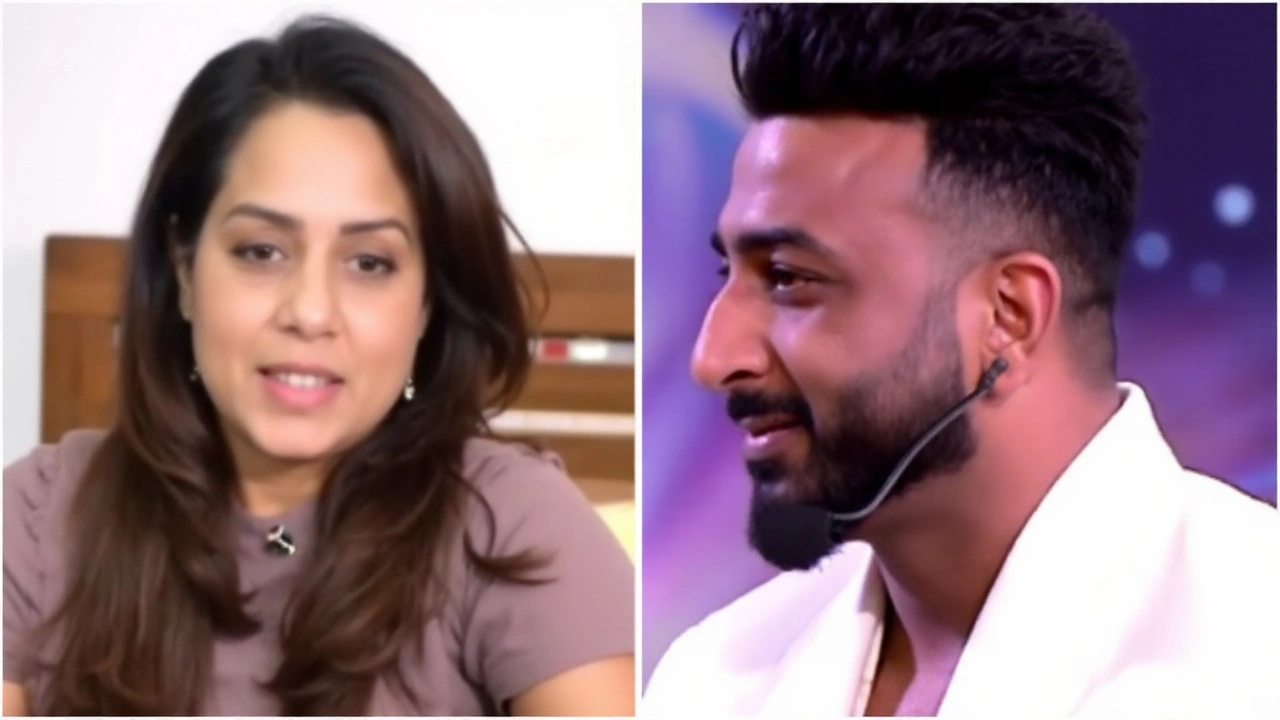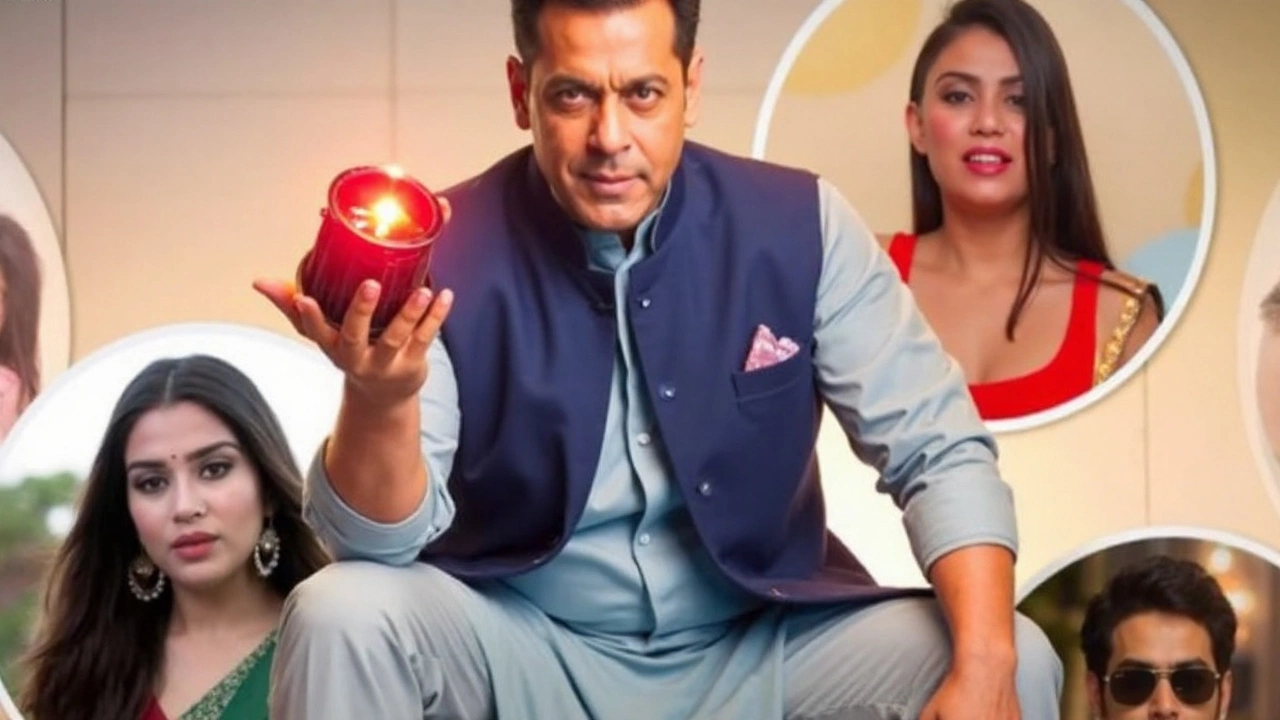Bigg Boss 19: Pre-premiere spat erupts after Shehbaz Badesha's jibe; Mridul Tiwari's sister hits back

A pre-premiere spark sets the tone
Before the lights, the confessions, and the first nominations, Bigg Boss 19 already had its headline: a sharp exchange between Shehbaz Badesha and YouTuber Mridul Tiwari, followed by a pointed rebuttal from Mridul’s sister, Pragati Tiwari. The flashpoint came during the show’s selection face-off hosted by Salman Khan. Asked about nerves, Mridul said he felt none. Shehbaz admitted he was a little anxious. Mridul teased him for it. Shehbaz shot back with a line that landed hard: "Aap muth utha kar YouTube par aa jaate ho"—loosely, "You just lift your face and show up on YouTube."
The remark didn’t just poke at Mridul. It hit at the value of online stardom. Mridul isn’t an unknown hopeful. He runs “The MriDul,” a channel built on desi family drama, slapstick timing, and everyday situations that click with schools, colleges, and small-town hangouts alike. He has 19 million YouTube subscribers and 4.5 million Instagram followers—numbers most TV aspirants can only dream about.
Pragati Tiwari moved fast. On social media, she framed his journey as graft, not luck. If YouTube is so easy, she said, anyone can try it—because that’s the point. It’s open. You build your name on output, not access. In her view, Shehbaz’s swipe sounded less like critique and more like insecurity. Her message was simple: don’t belittle the ladder someone else climbed if you’re free to use it too.
That family pushback struck a nerve because of who Shehbaz is. His sister, Shehnaaz Gill, is one of the franchise’s most enduring stars from Season 13. That baggage cuts both ways. He arrives with instant name recall and a built-in fan base. He also carries a stigma: the sense that a last name opened the door. Under promos and clips, comments questioned whether he won the spot on talent or lineage. Shehbaz will have to answer that inside the house, task after task. The optics won’t.
Mridul, meanwhile, has spent years working a formula that looks simple only from the outside. His channel leans into broad humor—cousin squabbles, strict parents, small-town bluster—shot in a way that feels like home video with a professional polish. It’s easy to watch, easy to share, and built for repeat viewing. The punchlines aren’t edgy; they’re familiar. That’s why they spread.
He’s also no stranger to scrutiny. In March 2025, a Lamborghini linked to him was involved in an accident in Noida’s Sector 94. Police and local media said the car, test-driven by a dealer named Deepak from Ajmer, hit two laborers near an under-construction site, leaving them with leg fractures. Mridul was not behind the wheel, but the incident drew heavy coverage because of the vehicle and the influencer attached to it. The episode didn’t dent his digital pull; his uploads kept racking up views.
The spark outside spilled inside almost at once. In the first elimination task—where housemates have to agree on who doesn’t deserve to stay—actor Kunickaa Sadanand cut through the noise and told Mridul, "Leader giri mat kar. Naam bata"—"Don’t act like a leader. Just name someone." That one line summed up the early friction. Digital stars are used to steering their own set, their own crew, their own edit. In the Bigg Boss house, nobody gets final cut. People push back. Loudly.
Salman Khan’s weekend court will shape all this. The face-off format is designed to tease out clashes before the contestants even unpack. That tension is the point. It sets storylines and seeds rivalries that the cameras can chase for weeks. When a jibe turns into a family statement, the narrative escapes the house and circles back—more views, more commentary, more pressure.

The bigger fight: YouTube clout vs TV pedigree
This isn’t just a spat between two entrants. It’s a culture clash. For years, Indian reality TV has borrowed heat from the creator economy. YouTubers bring communities that campaign, trend, and vote. TV gives them reach beyond their subscribers and the legitimacy of prime-time stagecraft. The mix is potent—and messy.
We’ve seen this play out before. Digital-first contestants have walked in with momentum and left with trophies or at least a season-defining arc. Their playbook is different. They talk straight to camera, lean on quick callbacks, and understand what clips well. They seed catchphrases and moments designed for short video. The house notices. So does the edit.
Shehbaz’s line targeted the soft spot in that rise. If anyone can "just show up" on YouTube, then what is internet fame worth? The counter is as blunt: access doesn’t equal success. You still need ideas, scripts, shooting schedules, a cast of friends willing to be on camera, and the stamina to post even when the last video flopped. The barrier to entry is low; the barrier to staying relevant is not.
There’s also the fairness argument. Casting teams want faces that pull ratings on day one. A sibling of a franchise favorite does that. So does a creator with millions of followers and a rabid comment section. Both choices can feel preloaded. The difference is in how they land on viewers. A relative reads as TV pedigree. A creator reads as audience power. Both generate curiosity. Both also invite skepticism: did the show pick them, or did the algorithm—or a famous last name—do the work?
Inside the house, the fallout is practical. A creator like Mridul, used to calling shots, may come off as "leadergiri" in group tasks. A contestant like Shehbaz, used to living in a famous shadow, may bristle at any hint that he’s there on borrowed spotlight. That’s why Kunickaa’s pushback mattered. It wasn’t about a single decision. It was about tone. Who gets to steer? Who gets to speak for the room?
For producers and advertisers, this collision is gold. Big numbers on YouTube promise social chatter on every episode drop. Known TV surnames promise instant recall for casual viewers. When those worlds clash in real time—say, a jibe about "easy" YouTube and a sister’s sharp defense—the show gets multiple storylines: family loyalty outside, alliance-building inside, and a meta-argument about what counts as "real work."
What should viewers watch for next? Whether Mridul doubles down on a leadership stance or softens it to avoid early isolation. Whether Shehbaz actively builds his own identity beyond the "Shehnaaz’s brother" tag—through tasks, humor, or unexpected alliances. Whether Pragati’s defense rallies creator communities to campaign harder. And how Salman frames the exchange on Weekend Ka Vaar, which often resets the house’s pecking order.
For now, the season has its early narrative. A one-liner on stage turned into a referendum on merit, access, and modern fame. One contestant carries the heft of a surname. The other carries the weight of subscriber expectations. Their first real battle won’t be in a task. It’ll be in the court of perception—inside the house, outside on phones, and every weekend on national TV.